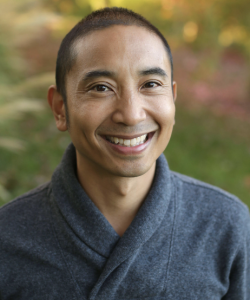Diversity, Belonging, Equity and Inclusion
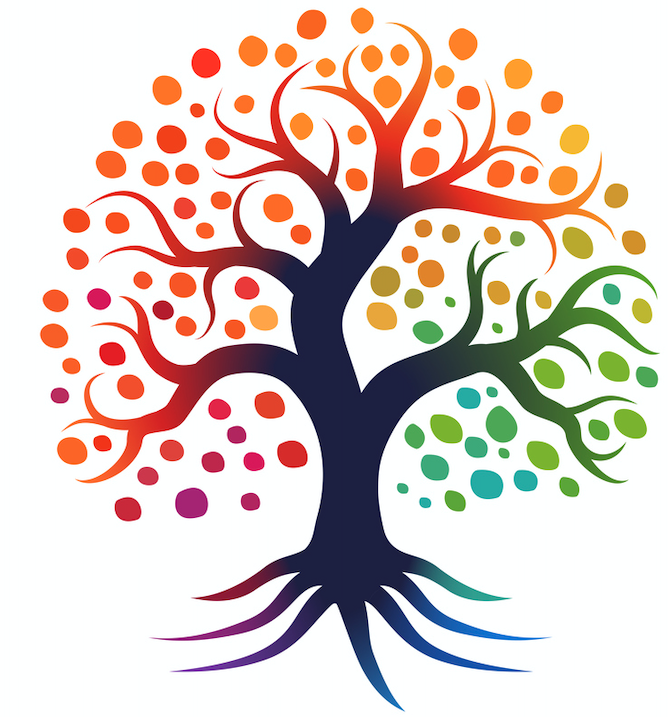
DBEI Committee: Community Engagement and Support
The DBEI Committee provides continuous community support through real-time course feedback, specialized training programs, and annual listening sessions. We prioritize ongoing discussions of essential topics to foster learning and development.
Each year (in March) begins with our listening session, where community members share insights that shape our annual initiatives. Our diverse committee – comprising a DEI consultant, four community members, two faculty, and one Institute staff member – works to create programs that leverage our community’s collective expertise and perspectives. Current members include Joshua DeSilva, Lynne Hartwell, Jacqueline Lynch, Karen Pando-Mars, Connie Rhodes, James Santos, and Jacquie Ye-Perman. We extend our gratitude to founding members Kate Halliday, Yuko Hanakawa, Jerry Lamagna, and Ben Medley for their foundational work in establishing this committee.
Our Mission
- To uplift and invite values of diversity, belonging, equity and inclusion and to strive through every element of AEDP to promote diversity in all of its many forms including race/ethnicity, sexuality, gender, age, size, ability, socioeconomic status, relationship status, nationality, culture and religion.
- To foster ways for the AEDP institute to continue to evolve in these areas, including having more diversity in leadership (faculty, supervisors and course assistants).
- Increasing inclusion and belonging in the world wide AEDP community by removing barriers to full participation with historically underrepresented identities and/or groups.
- To continue to develop theory and practices to address the impact of racialized trauma, trauma of oppression, and other forms of being othered in our society.
- To recognize the emergent DBE&I needs within the AEDP community by attending to present cultural moments.
- To help equip therapists to provide an open and engaged intervention to all clients, especially those from marginalized communities across the world.
- To be a learning community and theoretical home for all people in a way that is consistent with our core values of undoing aloneness and creating and maintaining safety and connection, and seeking to create conditions that are conducive to flourishing.
AEDP Vision Collective – AEDP & Healing Racialized Trauma
“Our vision is to create an ongoing, diverse cohort of people who are passionate about working together to develop initiatives and innovative approaches to addressing topics related to “AEDP & Healing Racialized Trauma.” Being attuned to the long-standing, historic and current oppression of global Black communities, and also to this historical moment in the USA, we have been deliberate in focusing on self-identified Black AEDP community members, asking them to take the lead to re-imagine ways that AEDP can address racialized trauma. In the future, we hope to broaden and build this initiative to include other marginalized communities and intersectional identities who experience oppression and systemic injustice.” Meet our members and explore the Collective here.
Programs and Focus
On July 1, 2020, AEDP™ Institute launched a pilot program offering all Institute-sponsored online trainings on a Pay-What-You-Wish basis to self-identified Black mental health professionals. The program has been extended through December 2025.
‘Pay-What-You-Wish’ participants can choose to attend courses for free or set an amount that they feel comfortable paying.
If you self-identify as a Black clinician and you wish to take advantage of this program, you can choose one of the following:
- If you have found a training that you want to join, please email Carolyn at carolyn.f@aedpinstitute.org with the following information:
Please provide the title of the course for which you are seeking a scholarship.- Your name, your email address and your license type and number.
- The amount (if any) that you wish to pay to ensure you receive the accurate registration link and pricing code for successful registration.
- If a course is currently listed as sold out, we may be able to make room for you – please ask.
- Haven’t found a specific training that works for you? Be sure to join our mailing list. We regularly announce new training sessions.
AEDP Institute invites program participants to voluntarily share their experiences and feedback by contacting admin@aedpinstitute.org or emailing the DBEI Committee at dbei.committee@aedpinstitute.org
In 2017-18 the Institute started a Diversity Scholarship Program for Immersion, Essential Skills courses and Institute sponsored seminars. Thus far, this program has awarded many scholarships and has helped our courses become more diverse and inclusive. The Diversity Scholarship Committee (formerly known as the Diversity Committee) works in tandem with the Committee for Diversity, Belonging, Equity & Inclusion and is composed of community and faculty members.
To apply for a scholarship for a particular course, please visit the course page and look for Diversity Scholarships just below the registration button.
We recognize the importance of ongoing work with anti-racism training, practices and processes. Members of AEDP Institute faculty and admin participated in “Groundwater” antiracism training with the Racial Equity Institute (REI).
AEDP Institute also partnered with Dr. Della V. Mosley, PhD, Assistant Professor at the University of Florida & Co-Founder of Academics for Black Survival and Wellness, to make available a meaningful, 14 week online training for non-Black therapists in anti-Black racism. This In-Depth training with live, AEDP Colleague Accountability Groups was originally developed by Dr. Mosley and a group of clinical psychologists working in academia to help people better understand anti-Black racism and help support Black professionals in the fields of psychology and academics.
Community members were invited to participate and the Institute sponsored the cost of the training for faculty, supervisors, experiential assistants and admin team members, with roughly 150 community members participating.
We plan to continue training in antiracism and engage with various organizations, leaders and teachers in the years ahead.
On Microaggressions towards racially marginalized groups: Many white people are fearful of “saying the wrong thing”. As human beings we sometimes say the wrong thing … It’s what we do after that makes all the diference. If we retreat in the midst of shame and guilt, that exacerbates the harm.
Self-awareness and self-regulation is key for us to bear the discomfort that arises when opening to face implicit biases when they arise and cause harm. The way to heal and repair the consequences of these actions and behaviors is for us to be willing to bear discomfort and bring focus to what needs to be attended to.
Acts of microaggression are wounding to people from various oppressed and vulnerable groups. For example, race, class/economic vulnerability, religion, sexual orientation, sex, non- binary gender identity, disability— visible and invisible, size, age, and other aspects of idenity all may have an impact on a person’s sense of safety or belonging, although we accept that this a non-exhaustive list. In this way, speaking from unexamined racial bias, mis-gendering a non-binary person; or making assumptions about someone’s economic or educational background; being “U.S.-centric” or “European-centric”, are examples of what may be experienced as microaggression. This may require that we re-examine our assumptions about our own relative “power”, or recognizing “privilege”.
There can be a confusion between intentions and consequences. The person in the “privileged position” often wants to exonerate themselves by explaining “I didn’t mean to” rather than staying with the consequence of the action, exploring and attending to the injury.
To commit to the repair is the point – to recognize and recalibrate and move to repair. This is what deepens the relationship.
For each of the steps to repair, here are suggestions for how to address microaggressions. Each
step suggests actions for the offender, and also for an ally of the person who has been offended.
ACKNOWLEDGEMENT
Attend to the Injury
My way of letting you know that I know that what I said was harmful or hurtful. (This serves the
relationship.)
Attending to the Injury as an ally
My way of letting you know that I know that what was said or done was harmful or hurtful. (This serves the relationship, and also acts as a teaching opportunity to the mircoaggressor.)
LINK TO PAST EXPERIENCE OF THE PERSON
Attend to the Injury
This lets them know that you are aware that you are not the only person to have done this micro aggression, and even though it seems small to you, aggressions have a cumulative effect that you are acknowledging. e.g. “I wonder when I said ….” this will not have been your only experience of this,
and that I am adding to the trauma you already carry.
Attending to the Injury as an ally
My way of letting you know that I am aware that even though it seems small to you, aggressions have a cumulative effect that I am acknowledging. e.g. I am aware that when …. was said this will not have been your only experience of this, and that this added to the trauma you already carry.
AFFIRMATION
Attend to the Injury
My way of saying to you that what you say or experience is the way it is. This is the reality I am operating from – even when I am convinced I have been misunderstood. (Selflessness)
Attending to the Injury as an ally
My way of saying to you that what you say or experience is the way it is. This is much harder, as the person who has made the microaggression may have moved to defensiveness, minimizing and even
gaslighting. However, even if you are convinced that the aggressor has been misunderstood it is important to affirm that lived experience of the person, again linking to their past experiences potentially. This may need to be done in private and in a safe space, or could be done with the microaggresor to act as a model for them to manage their discomfort.
PLEDGE OF DIRECT TARGETED ACTION
Attend to the Injury
I am pledging to you the ways I will do this next time. I will change my behavior.
Attending to the Injury as an ally
I am pledging to you the ways I will do this next time.
APOLOGY
Attend to the Injury
An authentic apology can convey what I am apologizing for. We aim for the person to experience feeling seen and felt.
REQUEST FOR FORGIVENESS
Attend to the Injury
I understand that I may be undeserving of forgiveness, the person may need more time. My request doesn’t guarantee forgiveness. I want to convey that I value our relationship. I hope you can forgive me and I know there is no guarantee.
ENDING THE CONVERSATION
Attend to the Injury
Be clear that you are not now waiting for them to take care of you or to sooth you, or find something that they need to apologize for.
SELF CARE
Attend to the Injury
The experience of managing your own shame and dysregulation within your body may take a toll, and needs to be acknowledged by you and you need to take care of the feelings this will bring up. This is a relational risk and process.
Microaggressions often reveal an unconscious bias. If I am not clear what I did – this is where I might cross the line about making oppressed people educate me. The requirement isn’t for me to know exactly what I did – this point is to acknowledge that you experienced hurt and harm by what I did.
For example: if I have stepped on your toe, the right action will be for us to attend to the bruised and bloody toe. It will add insult to the injury if I advise you “don’t wear those thin shoes again” or “next time stand further away from my feet”. We need to attend to the toe that is throbbing.
Part of dealing with microaggressions is allyship, being able to stand for those who have been marginalized when microaggressions occur. This is important to distinguish from Saviourism: moving in to protect someone without regard to how they need to be cared for. Allyship may mean stepping up to undo their aloneness, validating their experience, especially when they are being gas lit, and joining with their voice to reinforce the fact that a microaggression has occurred.
Attending to the Injury as an ally
The experience of managing your own shame and dysregulation within your body will also take a toll, and needs to be acknowledged by you.
Microaggressions: Spotting them and repairing them
Based on Kenneth Hardy’s presentation at Marin CAMFT October 23, 2021 as summarized by Karen
Pando Mars and amended by Jacqueline Lynch and Kate Halliday, AEDP DBEI Committee Members.
A large part of these resources were shared with us by NESTTD, New England Society for the Treatment of Trauma and Dissociation. We owe a debt of gratitude for their permission to share.
Lifting Black Voices: Therapy, Trust, and Racial Trauma
An panel discussion about transgenerational racial trauma and its impact on therapeutic trust, featuring Dr. Tiffany Crayton, LPC-S, La Shanda Sugg, LPC, and L.J. Lumpkin, LMFT
A Free 1 CE Credit Hour Podcast Continuing Education Course… Donations Encouraged
https://courses.clearlyclinical.com/courses/free-ceu-racial-trauma-therapy
Providing Inclusive, Respectful Care to Your Gender Questioning, Transgender, & Nonbinary Clients
From pronouns to signage to handling mis-gendering, this course provides helpful guidance about supporting gender minorities in therapy, featuring Dara Hoffman-Fox, LPC
A Free 1 CE Credit Hour Podcast Continuing Education Course… Donations Encouraged
https://courses.clearlyclinical.com/courses/free-ceu-transgender-nonbinary-clients
Racism and Trauma
Books
- The Inner Work of Racial Justice: Healing Ourselves and Transforming Our Communities Through Mindfulness by Rhonda V. Magee (Author), Jon Kabat-Zinn (Foreword)
- Separate is Never Equal by Duncan Tonatsu
- Seven years before Brown v. Board of Education, the Mendez family fought to end segregation in California schools. Discover their incredible story in this picture book from award-winning creator Duncan Tonatiuh.
- She Persisted by Chelsea Clinton
- Chelsea Clinton introduces tiny feminists, mini activists and little kids who are ready to take on the world to thirteen inspirational women who never took no for an answer, and who always, inevitably and without fail, persisted.
- Resist: 35 People Who Rose against Tyranny and Injustice by Veronica Chambers
- A perfect tool for young readers as they grow into the leaders of tomorrow, Veronica Chambers’s inspiring collection of profiles—along with Senator Cory Booker’s stirring foreword—will inspire readers of all ages to stand up for what’s right.
- Little Legends and Little Leaders by Vashti Harrison
- Author-illustrator Vashti Harrison shines a bold, joyous light on black men through history in this #1 New York Times bestseller.
Children’s Books on Racism
- The Day You Begin By Jacqueline Woodson
- National Book Award winner Jacqueline Woodson and two-time Pura Belpré Illustrator Award winner Rafael López have teamed up to create a poignant, yet heartening book about finding courage to connect, even when you feel scared and alone.
- Brown Girl Dreaming By Jacqueline Woodson
- Raised in South Carolina and New York, Woodson always felt halfway home in each place. In vivid poems, she shares what it was like to grow up as an African American in the 1960s and 1970s, living with the remnants of Jim Crow and her growing awareness of the Civil Rights movement. Touching and powerful, each poem is both accessible and emotionally charged, each line a glimpse into a child’s soul as she searches for her place in the world. Woodson’s eloquent poetry also reflects the joy of finding her voice through writing stories, despite the fact that she struggled with reading as a child. Her love of stories inspired her and stayed with her, creating the first sparks of the gifted writer she was to become.
- Not My Idea by Anastasia Higginbotham
- Not My Idea: A Book About Whiteness is a picture book about racism and racial justice, inviting white children and parents to become curious about racism, accept that it’s real, and cultivate justice.
- All the Colors We Are/Todos los colores de nuestra piel: The Story of How We Get Our Skin Color/La historia de por qué tenemos diferentes colores de piel by Katie Kissinger.
- Celebrate the essence of one way we are all special and different from one another—our skin color! This bilingual (English/Spanish) book offers children a simple, scientifically accurate explanation about how our skin color is determined by our ancestors, the sun, and melanin. It’s also filled with colorful photographs that capture the beautiful variety of skin tones. Reading this book frees children from the myths and stereotypes associated with skin color and helps them build positive identities as they accept, understand, and value our rich and diverse world. Unique activity ideas are included to help you extend the conversation with children.
Children & Anti-Racist Parenting
- Talking to Kids about Racism Part 1 https://www.facebook.com/watch/live/?v=3163881693633440&ref=watch_permalink
- Talking to Kids about Racism Part 2 w Beverly Daniel Tatum https://www.facebook.com/560763030938742/videos/264032861323725
- An Anti-Racism Conversation for All of Us with Dr. Jennifer Harvey https://www.youtube.com/watch?v=0k2SQDc_d2M&t=10s
- Racism and Violence: How to Help Kids Handle the News: A conversation between Kenya Hameed, PsyD and Jamie Howard, PhD of Child Mind Institute.
- The Conscious Kid: An Instagram account and Patreon site with information on parenting and education through a critical race lens.
- https://padlet.com/nicolethelibrarian/nbasekqoazt336co?fbclid=IwAR2DqDyShBtZ3E23DKOzcXSJGY9oXQnR47_SGvLeOpRJ4qSEbL1abehrWCg
- Antiracist Baby by Ibram X Kendi
Articles & Publications
- Toward a Psychological Framework of Radical Healing in Communities of Color Bryana H. French, Jioni A. Lewis, Della V. Mosley, Hector Y. Adames, Nayeli Y. Chavez-Dueñas, Grace A. Chen, and Helen A. Neville
- Trainee Perspectives on Relational Cultural Therapy and Cultural
- Competency in Supervision of Trauma Cases, Jennifer M. Gómez, Wayne State University
- Trainee Perspectives on Relational Cultural Therapy and Cultural Competency in Supervision of Trauma Cases by Jennifer M. Gómez Wayne State University
- Becoming an Anti-Racist Organization: An Anti-Racist Model for Organizational Change Mary Pender Greene, LCSW-R, CGP | Summer edition of NYC-NASW news | The article is really excellent and challenging, as well. It provides a multi-level template for building an anti-racist organization
- Attending to racial trauma in clinical supervision: Enhancing client and supervise outcomes. Alex L. Pieterse
- Is Calling in the New Calling Out? Prof. Loretta J. Ross, Smith College | New York Times
- Facilitating Difficult Race Discussions: FIVE INEFFECTIVE STRATEGIESAND FIVE SUCCESSFUL STRATEGIES by Derald Wing Sue, PhD, Professor of Psychology and Education, Teachers College, Columbia University
- Multicultural Orientation in Psychotherapy Supervision by CE Watkins Jr · 2019 | Article in American journal of psychotherapy · August 2019
- Developments in the application of AEDP in the treatment of marginalized populations Several articles and books have been written about working with multicultural populations. Please click on link above to view AEDP’s resources and publications page for more information or click here.
Other Comprehensive Lists
Black Life Matters: Anti Racism Resources for Social Workers and Therapists
Mental Health Focused BIPOC-led Organizations for Communities of Color
- https://www.kindredmedicine.com
- https://www.blacktherapistsrock.com/Home#mission
- https://www.abpsi.org/
- https://therapyforblackmen.org/about/
- https://blackmentalhealth.com/
- https://www.woyminc.org/about-us
- Black Emotional and Mental Health collective BEAM – https://www.beam.community/bvtn
- Loveland Therapy Fund – provides financial assistance to Black women and girls nationally seeking therapy https://thelovelandfoundation.org/loveland-therapy-fund/
- Representation Matters in Social Work: We Need More Black Therapists – https://notesfromanaspiringhumanitarian.com/representation-matters-in-social-work-we-need-more-black-therapists/
- Sharing Hope: Speaking with African Americans about Mental Health – NAMI – “hour-long presentation that can help increase mental health awareness in African American communities…”
- Trauma Healing Fund for Black Folks – https://projectlets.org/traumahealingfund
- The Okra Project serving Black trans people https://www.theokraproject.com/
- https://www.eustressinc.org/
- https://www.inclusivetherapists.com/
- https://www.melaninandmentalhealth.com/
- https://nopcas.org/
- https://www.sistaafya.com/
- https://aakomaproject.org/
- https://www.nqttcn.com/?fbclid=IwAR0dqlNteVNhdMRy0vn2dQBNVd1yztjlEhVMlyKDpZr25UTdB5OuTcnvZOQ
- https://www.blackmentalwellness.com/
- https://blackmentalhealth.com/
- https://www.blackgirlssmile.org/
Microaggression
- Disarming Racial Microaggressions: Microintervention Strategies forTargets, White Allies, and Bystanders, Derald Wing Sue, Sarah Alsaidi, Michael N. Awad, Elizabeth Glaeser, Cassandra Z. Calle,and Narolyn MendezTeachers College, Columbia University
- Implicit Bias and Microaggressions: the Macro Impact of Small Acts Derald Wing Sue, Teachers College, Columbia University | (2015) YouTube
- Perceptions of Racial Microaggressions Among Black Supervisees in Cross-Racial DyadsMadonna G. Constantine and Derald Wing Sue, Teachers College, Columbia University | (2007) Journal of Counseling Psychology Copyright 2007 by the American Psychological Association Vol. 54, No. 2, 142–153 | 0022-0167/07/$12.00 DOI: 10.1037/0022-0167.54.2.142
- Racial microaggressions in everyday life: Implications for clinical practice. Sue, D. W., Capodilupo, C. M., Torino, G. C., Bucceri, J. M., Holder, A. M. B., Nadal, K. L., & Esquilin, M. | (2007) American Psychologist, 62(4), 271–286
- Is it Racist? Addressing Racial Microaggressions in Counselor Training Malott, K. M., Paone, T. R., Schaefle, S., & Gao, J. | (2015) Journal of Creativity in Mental Health, 10(3), 386–398
- Implicit Bias and Microaggressions: the Macro Impact of Small Acts Malott, K. M., Paone, T. R., Schaefle, S., & Gao, J. | (2015) Journal of Creativity in Mental Health, 10(3), 386–398
- Racial Microaggressions, Whiteness & Feminist Therapy (Journal Article)
- Racial Microaggressions in Everyday Life: Implications for Clinical Practice (Journal Article)
Native Land Map
Native Land Map https://native-land.ca/
Podcasts and Social Media
- Seeing White https://www.sceneonradio.org/seeing-white/
- Rerooted Podcast https://art19.com/shows/rerooted?page=2
- Trauma Therapist- Racial Trauma with Dr. Thema Bryant-Davis https://podcasts.apple.com/us/podcast/episode-202-racial-trauma-with-thema-bryant-davis/id899009517?i=1000377609459
- On Being interview Resmaa Menakem https://onbeing.org/programs/resmaa-menakem-notice-the-rage-notice-the-silence/
- Decolonizing Therapy Instagram and Twitter: Resources on healing ancestral trauma compiled by Dr. Jennifer Mullan, clinical psychologist and community organizer.
- On Decolonizing Therapy with Jennifer Mullan and Bianca Laureano
- Melanated Social Work Instagram and podcast: Mental health resources, information, and discussions created and curated by four men of color in the social work field.
- Sonya Renee Taylor, radical self love https://instagram.com/sonyareneetaylor?igshid=f54z165gbx4q
- Leesa Renee Hall, antibias facilitator https://instagram.com/leesareneehall?igshid=1qtv8vsn2hxou and https://shor.by/leesareneehall
- Rachel Cargle public academic https://instagram.com/rachel.cargle?igshid=1pdiw3huo0k9g and https://linktr.ee/1thatgotawayy
- Good Ancestor podcast https://laylafsaad.com/good-ancestor-podcast
- 1619 https://podcasts.apple.com/us/podcast/1619/id1476928106
- 13th: A documentary directed by Ava Duvernay on how the country’s history of racial inequality drives the high rate of incarceration in America.
- I Am Not Your Negro documentary
- Just Mercy https://www.justmercyfilm.com/
- The Triggered Project https://triggered1.com/home-945b8be8-7b4a-470f-ac20-f9f45d27a81f
- Brené with Aiko Bethea on Inclusivity at Work: The Heart of Hard Conversations. This podcast is on leadership and DE&I work with Brene Brown
- What if Instead of Calling People Out, We Called Them In? Prof. Loretta J. Ross | WNYC Studios
- Why Scholar Loretta Ross Is ‘Calling In’ Callout Culture
- December 03, 2020 by Dorey Scheimer and Meghna Chakrabarti | On Point NPR
- Decolonizing Clinical Supervision Presenters: Dana Stone, PhD, & Jessica ChenFeng, PhD
Recorded Training
Decolonizing Clinical Supervision
Presenters: Dana Stone, PhD, & Jessica ChenFeng, PhD
Fighting racism without shaming
Multicultural Orientation (MCO) Deliberate Practice Webinar
Resources
There are many great books and articles that address oppression. This list is meant to only be a sampling of some of the many that are in print, as well as ones that appeared or were mentioned in the presentation. Articles and books about AEDP can be found on the AEDP website. Go here.
- Monnica Williams PhD Racial Trauma Readings Includes Racial Trauma and PTSD Reading List, Critical Papers, Measures and Assessment, Treatment Focused, and more.
- Mentalhealthdisparities.org/trauma-research.php is a link related to UCONN and has several resources including “Clinical Assessment of Racial Trauma”, list of related papers, PTSD in Diverse Populations
- NCBI / NIH resource: Instruments Measuring Perceived Racism/Racial Discrimination: Review and Critique of Factor Analytic Techniques
- Race and Trauma Resource List from the APA counseling.org resources: scroll down to see a list of three journal articles including “Perceived Everyday Discrimination” re Depressive symptoms and treatment suggestions, also the relationship between training and treatment.
- “Radical Hope in Revolting Times: Proposing a Culturally Relevant Psychological Framework” Mosley, Neville, et al Social and Personality Psychology Compass Dec 2019
AEDP Website Quick Links
In Solidarity. Black Lives Matter.
Reaching for Diversity, Equity and Inclusion at the AEDP Institute
To view the list of AEDP Certified Supervisors offering low cost and/or free individual or group supervision for Black members of the AEDP community please go here.
If you have resources to share, please email lynne.hartwell@aedpinstitute.org
Meet the DBE&I Committee Members
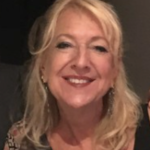
Lynne Hartwell

Jacqueline Lynch, PhD
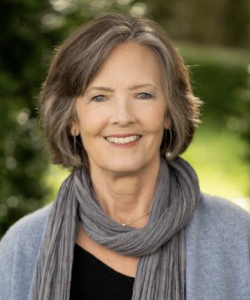
Karen Pando-Mars, MFT
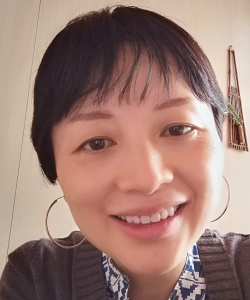
H. Jacquie Ye-Perman, PhD
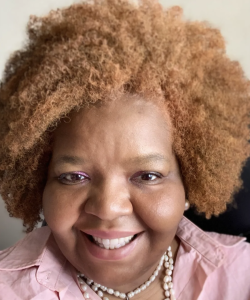
Connie Rhodes
